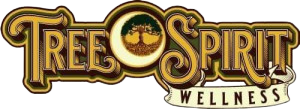What is THC?
THC, or Tetrahydrocannabinol, is the primary psychoactive compound found in the cannabis plant. It is the chemical most responsible for the psychological effects—or the "high"—associated with marijuana use. When people refer to the potency of a cannabis product, they are typically talking about its THC percentage.
How Does THC Work?
THC mimics the body's natural endocannabinoids. It binds primarily to CB1 receptors in the brain and central nervous system, which are part of the endocannabinoid system (ECS). This interaction alters the release of neurotransmitters and temporarily affects:
- Mood (euphoria, relaxation)
- Memory (short-term impairment)
- Perception (altered senses of sight, sound, touch)
- Appetite (stimulation, "the munchies")
- Pain sensation (relief)
Types of THC
While "THC" commonly refers to Delta-9-THC, there are several forms:
- Delta-9-THC: The most abundant and well-known form, famous for its potent psychoactive effects.
- Delta-8-THC: A less potent analog that occurs in tiny amounts in the plant. It is often derived from hemp and offers a milder, more clear-headed high.
- THCA (Tetrahydrocannabinolic Acid): The non-psychoactive acidic precursor to THC found in raw cannabis. It converts to Delta-9-THC when heated (decarboxylation).
- THCP (Tetrahydrocannabiphorol): A newly discovered cannabinoid that may be significantly more potent than Delta-9-THC due to its stronger binding affinity with CB1 receptors.
Effects & Benefits of THC
Psychoactive Effects:
- Euphoria and relaxation
- Altered perception of time
- Increased laughter and creativity
- Potential side effects: anxiety, paranoia, dry mouth, red eyes, increased heart rate (especially at high doses)
Therapeutic Benefits:
THC is widely used for its medicinal properties, which include:
- Pain Relief: Effective for chronic pain, neuropathic pain, and migraines.
- Nausea and Vomiting Reduction: Particularly beneficial for patients undergoing chemotherapy.
- Appetite Stimulation: Helps combat appetite loss in conditions like HIV/AIDS.
- Muscle Spasticity: Can reduce spasms in multiple sclerosis.
- Sleep Aid: Helps with insomnia and improving sleep quality.
How is THC Consumed?
- Smoking: In joints, pipes, or bongs. Effects are felt almost immediately and peak within 30 minutes.
- Vaping: Heating cannabis oil or flower to a temperature that releases THC without combustion. Offers a smoother experience.
- Edibles: Food products infused with THC. Effects take longer to onset (30 mins - 2 hours) but are stronger and last longer.
- Tinctures/Oils: Liquid extracts placed under the tongue (sublingually) for relatively fast absorption.
- Topicals: Creams, balms, and lotions applied to the skin for localized relief without psychoactive effects.
- Concentrates: High-potency products like shatter, wax, and live resin, typically consumed by dabbing.
Legality of THC
The legal status of THC is complex and varies greatly:
- Federally: Delta-9-THC is still classified as a Schedule I controlled substance in the United States.
- State Laws: Many states have legalized THC for medical and/or recreational use.
- Hemp-Derived THC: The 2018 Farm Bill legalized hemp (cannabis with ≤0.3% Delta-9 THC by dry weight). This created a legal market for hemp-derived Delta-9 THC products (like gummies) and Delta-8-THC.
⚠️ Important: Always check your local and state laws before purchasing or possessing any THC product.
THC vs. CBD
| Feature | THC | CBD |
| Psychoactivity | Yes (Produces a high) | No (Non-intoxicating) |
| Source | Marijuana (high conc.), Hemp (low conc.) | Hemp (high conc.), Marijuana (low conc.) |
| Primary Use | Recreational & Medicinal | Medicinal & Wellness |
| Legality | Complex (Varies by state & type) | Federally Legal (if from hemp) |
FAQ About THC
Q: Will THC make me fail a drug test?
A: Yes. Standard drug tests screen for THC metabolites, and consumption of any THC product will likely cause a positive result.
Q: What is a good THC dose for beginners?
A: For smoking/vaping, start with 1-2 small puffs and wait 15 minutes. For edibles, start with 2.5mg - 5mg and wait at least 2 hours before consuming more.
Q: Can you overdose on THC?
A: A lethal overdose is considered virtually impossible. However, consuming too much can lead to significant discomfort, including extreme anxiety, paranoia, and vomiting—a condition often called "greening out."
Q: How long does THC stay in your system?
A: It depends on frequency of use, metabolism, and body fat. THC can be detectable in urine for:
- Occasional users: 3-7 days
- Regular users: 15-30 days
- Chronic heavy users: 30+ days







